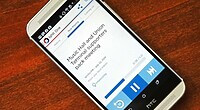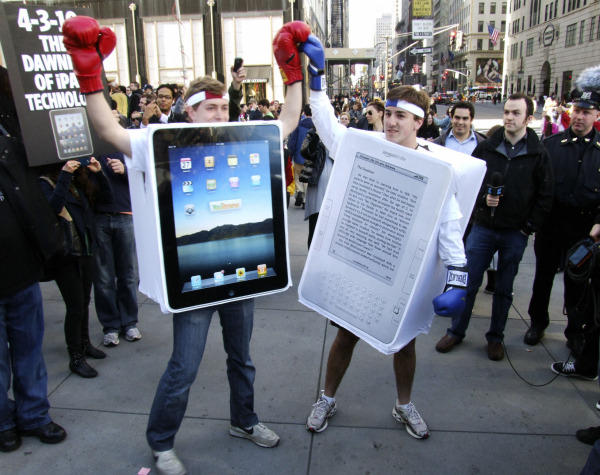
Good e-Reader has been chronicling the e-reader industry right around the time Amazon released their second generation model and started to compete against Sony. We have seen the rise of Kobo, Nook and a host of European companies offer a dedicated device that was designed just to read eBooks. You would be surprised how many emails we get about the benefits of a dedicated e-reader when compared to a smartphone or tablet. Today, we look at some of the main ones, to help you in your quest to find the ideal device for your lifestyle.
Long Battery Life
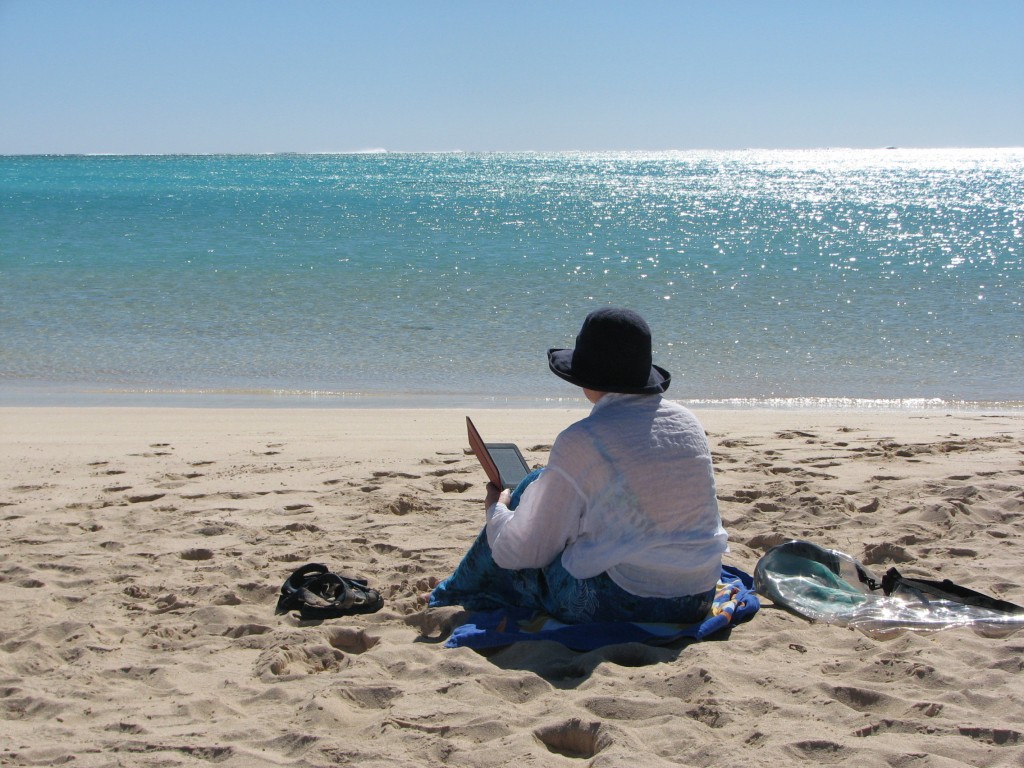
I am a self-admitted gadget fiend, finding solace in new tech toys. One of the problems I have noticed with smart watches, fitness bands, smartphones or tablets is the deplorable battery life. You have to charge these puppies every single day, unless you carry around a solar charger or spare battery.
e-Readers such as the Nook Glowlight, Kindle Paperwhite or Kobo Aura were designed to last a really long time. You could basically read every single day for a few hours and it will last about a month
It is all about the screen technology that powers the readers that make them last so long. e-Ink was designed to only draw power when the screen is refreshed. It draws no power when you are simply reading.
Reading in the Sun is Glorious

I am sure everyone has run into the situation where you need to hunt around for a bit of shade and get out of direct sunlight. LCD screens tend to reflect light like nobodies business because the average screen has multiple layers.
Take the iPad for example, it has an in-plane switching (IPS), light-emitting diode (LED), liquid crystal display (LCD) that produces crisp, clear colors under normal conditions. It’s not laminated the same way the iPhone screen is, so it’s even slightly more reflective when it catches rays.
When it comes down to it most smartphones and tablets have a glossy screen. I believe most e-ink screens are optimized for a matte screen, which allows our eyes to relax in a more natural state. E-paper is not reflective by nature, so even under direct sunlight you can read a book perfectly, ideal for the beach.
Reading in the Dark is Rad – Tablets, well they might kill you
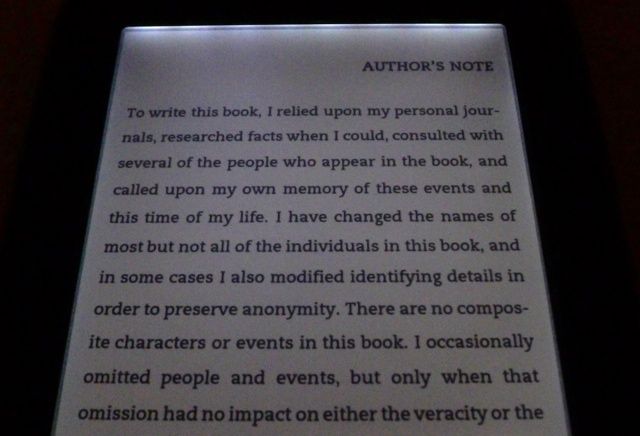
When it comes to reading in the dark people often use their tablets or smartphones. This is one of the worst things you could possibly do.
If person uses any type of tablet that has a backlit screen, such as the iPad or Kindle Fire in the dark, it can suppress the release of melatonin. So what is melatonin and why is it a big deal? Melatonin is a hormone produced by the pineal gland at night and under conditions of darkness in both diurnal and nocturnal species. It is a “timing messenger,” signaling nighttime information throughout the body. Exposure to light at night, especially short-wavelength light, can slow or even cease nocturnal melatonin production. Suppression of melatonin by light at night results in circadian disruption and has been implicated in sleep disturbances, increased risk for diabetes and obesity, as well as increased risk for more serious diseases, such as breast cancer, if circadian disruption occurs for many consecutive years, such as in night shift workers.
Reading at night is hardly advisable on a tablet, but is better with an e-reader. Most modern devices from Amazon, B&N, Kobo, Onyx and Icarus all have front-lit display screens. Instead of the light emitting from behind the screen, like a tablet, the light stems from small LED lights on the bottom of the bezel that shine upwards. This gives you even light distribution across the entire screen, illuminating all of the text.
e-Readers are Durable
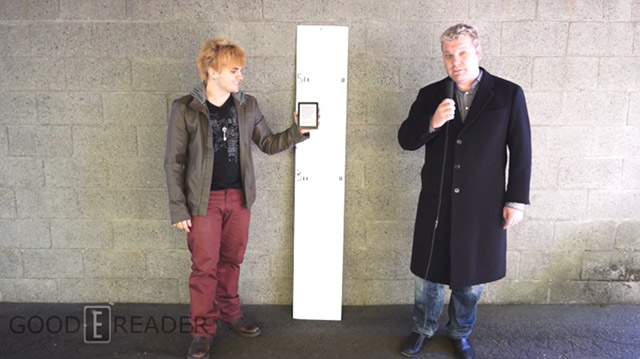
Let me be perfectly honest. I have a really expensive tablet, that cost over $1,100. When I bring it out in public it is hard to really enjoy it because I am so worried I might drop it on the floor, it might get pinched or I simply am absent minded and will lose it. So when it comes down to it, I often just leave it at home, instead of bringing it out. Same with vacations, its hard to chill by the pool or go on hikes and have it get wet or exposed to the elements.
e-Readers are fairly low cost. You could get a top of the line mode for under $129 and it could take more of a beating than tablets ever could. On our Youtube Channel we have done drop tests with most e-readers released in the last three years, they all survived. This is because they don’t have glass, they use e-paper and most of the bodies are high grade plastic. Tablets do have glass and they break or chip really easy. I mean, how many people have you seen out in public with broken iPhone screens because they fell a few feet and hit the concrete?
Wrap up
When it comes right down to it, e-readers are far superior in battery life, are inexpensive and can take a beating. They are simply not a target for thieves and you can feel free to bring it during your commute, without people sizing you up.
Reading for long durations on an ereader is very easy on the eyes and studies have proven that tablets are really bad.
Have I missed anything? What do you guys prefer to read on, phones, tablets or e-readers?
Michael Kozlowski is the editor-in-chief at Good e-Reader and has written about audiobooks and e-readers for the past fifteen years. Newspapers and websites such as the CBC, CNET, Engadget, Huffington Post and the New York Times have picked up his articles. He Lives in Vancouver, British Columbia, Canada.
